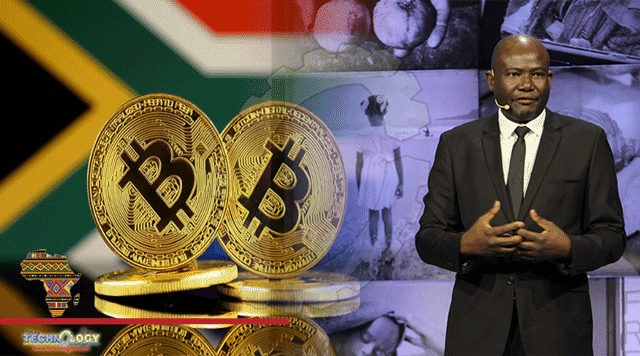Recent Reports Of What Regulators Suspect To Be Another Investment Scam In South Africa Have Highlighted The Dangers Of Investing.

Cryptocurrencies have been getting increased attention among inexperienced South African speculators, thanks to their surging prices and volatility creating the impression that they can help you get rich quick. Recent Reports Of What Regulators Suspect To Be Another Investment Scam In South Africa Have Highlighted The Dangers Of Investing Your Hard-Earned Cash Into Fly-By-Night Crypto Investment Schemes.
Two brothers, Raees and Ameer Cajee, have been accused of fleeing South Africa with customers’ funds that were invested in their platform called Africrypt. The brothers have denied that they stole the money and insisted they fell prey to a hack in which less than $5 million (R72.2 million) in cryptocurrency was stolen. This development comes just months after the collapse of Mirror Trading International (MTI), which Chainalysis labelled as the biggest crypto-related scam of 2020.
These are just examples among the many suspected cryptocurrency-related scams which have proliferated in recent months, spurring regulators to crack down on the burgeoning space and finalise a regulatory framework to oversee crypto assets in South Africa. This will seek to define digital currency as a financial product, which would require that platforms offering investments in cryptocurrencies be legally registered to do so.
The Financial Sector Conduct Authority (FSCA) oversees the regulation of financial institutions in South Africa. MyBroadband recently spoke to the FSCA’s Divisional Executive for Enforcement & Market Integrity, Brandon Topham, about how South Africans can best protect themselves from investment scams. Topham highlighted five main factors to consider in determining the legitimacy of an investment.
These are as follows:
- The claimed return on investment rate.
- The use of computer software to perform trades.
- The technical and complicated jargon used in the investment proposal.
- The involvement of credible advisors.
- The track records of the people running the investment scheme.
Investment returns
Topham warned if the return being advertised was unrealistic compared to the banks’ prime overdraft rate, it was clearly a scam. “The higher the return, the higher the risk associated with any ‘investment’. When a return is exceptional, it is a fraud,” he stated. He explained that even very high-risk investments with the best possible interest rates would not return more than the prime overdraft rate, which currently stands at 7% per annum.
These investments would not be suitable for 99% of South Africans. “Most investment managers are trying to beat inflation by a few percent. Inflation is currently 3% for this purpose.” He added that these managers were technically trained, qualified and experienced persons who battled to beat inflation in many cases. In addition, the higher the return rate, the more due diligence would be required, and the more paperwork — such as auditor reports — should exist to support it.
Computer software and technical jargon
Another red flag is the scheme’s claims that it uses some form of a computer program like a trading bot or Artificial Intelligence (AI) to bring in big returns. “No computer program or person can or has ever outperformed any market,” Topham said. He likened such programs to the mystical Holy Grail, stating that they do not exist.
In conjunction with this, Topham cautioned that con artists would use complicated technical jargon to intimidate people, who could fall for the trap out of the fear of looking stupid and asking silly questions. “Very few people understand the crypto asset world, and as it makes no sense as to how it offers a return — in most cases — using crypto assets as the back story to justify the high returns offered is currently very popular,” Topham said. Topham said if you don’t understand how the underlying business makes money or what it is, you should not be investing.
Credit advisors and track records
Finally, Topham said the involvement of credible advisors and the track record of the people promoting the investment scheme should be scrutinised. “Conmen are excellent salesmen and are very likeable. This is not a reason to invest,” he stated. “People have track records. Look at the individuals and apply common sense to everything.” He advised that people stick with traditional financial products offered by financial institutions registered with the FSCA and consult FSCA-registered financial advisors.
“Even then, understand that there is no easy money or investment return in this world, and nothing is ever truly guaranteed.” Topham said it would be difficult to distinguish between legitimate cryptocurrency trading platforms and scammers until the FSCA registered them when new regulations were implemented. “Even after we can register, you always have a risk,” Topham said. “Even registered banks have collapsed. Nothing can ever be guaranteed, and people will always need to spread their risk and understand that they must take care with their money,” he added.
Spread your investments
The FSCA advises the general public against investing in crypto assets, as the organisation holds that they are “fundamentally flawed” as investment products. “Those who wish to speculate or gamble must only do so with what they can afford to lose,” Topham warned. “This is not the place to put your retirement money. In addition, no asset class — not even government bonds which are considered the safest of all asset classes — should receive all your savings.”
“Savings need to be spread across different asset classes, depending on your risk profile and other factors which registered financial advisors need to consider when aiding in investment choices,” Topham advised.
This news was originally published at My Broadband.